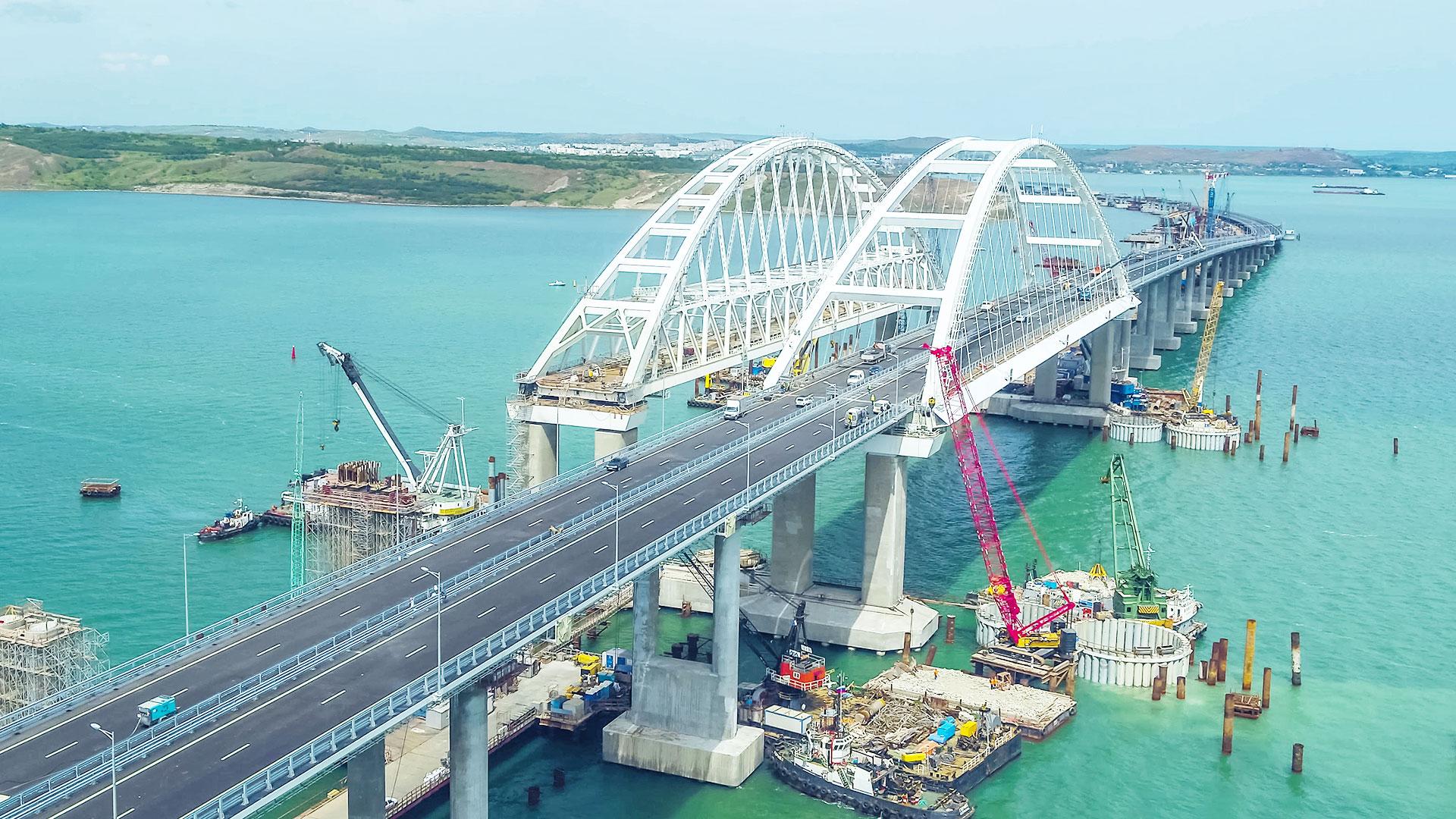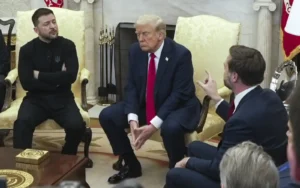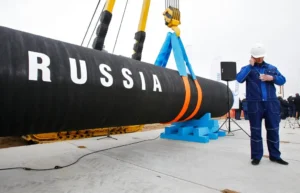For the first time since the start of the conflict between Ukraine and Russia, soldiers from both countries openly confronted each other. The Ukrainian government declared that on Sunday 25th of November Russia opened fire and seized three Ukrainian ships that were trying to enter the Sea of Azov through the Kerch Strait. On video footage, released by the Ukrainian government, one can see a Russian coast guard ramming an Ukrainian tugboat. According to Russia the Ukrainian military had not asked permission to access the Kerch Strait and ignored Russian attempts to contact them, which is why the former closed the Kerch Strait.
Tensions
Tensions regarding the Azov Sea are not new. In 2003 a treaty was signed between Russia and Ukraine stressing that both countries are allowed to use the Kerch Strait and the Azov Sea, but they need to notify each other when one is sending military vessels. The Azov sea is of great importance for both countries since it gives access to the Black Sea and it has been a very sensitive topic since the annexation of Crimea in 2014. With the annexation, Russia built a bridge to connect the Crimean peninsula with Russian mainland which basically put Russia in control over the access, to the annoyance of Ukraine. Tensions were increased when the Ukrainian government started to accuse Russia of purposely trying to block their way in order to cause economic damage as part of the ‘hybrid war’. Russia started to inspect all the vessels entering the Azov Sea, justifying it by a need for security and safety.
Ukrainian reaction
Both countries accused each other of provocation and of intentionally triggering a conflict during an emergency council meeting of the UN. The Ukrainian ambassador to the UN, Volodymyr Yelchenko, said after the Ukrainian tugboat had been rammed fire was opened in order to provoke the Ukrainians to open fire. The Ukrainian Minister of Foreign Affairs, Pavlo Klimkin, suggested that Russia is aiming for a Georgia scenario whereby Russia tries to invoke a conflict in order to justify military action.
As reaction to the conflict Ukraine has put its forces on full combat alert and martial law was introduced by the Military Cabinet and backed by President Petro Poroshenko. The martial law gives the government the power to restrict public demonstrations, regulate the media, suspend elections etc. Poroshenko said there will be no restriction regarding civil freedoms. He declared that the law will contribute to strengthen Ukraine’s defense and it is necessary to guarantee safety. The law was approved by the Ukrainian parliament. It is the first time since the start of the conflict in 2014, that such heavily measures were taken. The question raised by some observers is why Ukraine decided now to impose the martial law and not at the peak of the conflict in 2014/2015. Russia argues that the Ukrainian government imposed martial law now because Ukraine will hold Presidential elections early next year and this is way to avoid them for a President who is not doing well in opinion polls.
Russian reaction
Russia’s security service, the FSB, regards the incident as a provocation from Ukraine. The FSB added that the Azov Sea actually belonged to Russia even before Crimea became part of Russia. Russian Minister of Foreign Affairs, Sergey Lavrov, called the “provocation” a well calculated move of the Ukrainian government since the incident provides it with “certain benefits”. He stresses that Ukraine can rely on support of the US and Western Europe, who he said blindly support Ukraine as they always do. President Putin did not call it a provocation, but he expressed his concerns over the imposed martial law in a phone conversation with Chancellor Angela Merkel and he hoped Merkel will intervene.
International reaction
The UN security council failed to agree during an emergency meeting, but several countries, such as UK, France, Germany and the Netherlands condemned the incident. The NATO also condemned it; Secretary General Jens Stoltenberg called the incident a reminder of the war that is going on since 2014 and stresses that NATO condemns Russia’s aggressive actions towards Ukraine. The European Union also responded and called upon Russia “to restore freedom of passage”.
How to continue?
The Ukrainian ambassador to the UN, Volodymyr Yelchenko, said that further escalation should not be ruled out and that Russia showed once again it will not stop its aggressive policy. He also added that Ukraine is ‘ready to settle the situation through political and diplomatic means.’ The German Minister of Foreign Affairs, Heiko Maas, proposed a mediation by Germany and France to prevent any further escalation. Maas considers the tension as a threat for the safety of Europe and he hopes to come to a political solution. France and Germany have acted as mediators before, in the negotiations of the Minsk ceasefire treaty in 2015.
Sources: BBC, The Guardian, Reuters, NATO, Unian
Photo: Wikipedia



